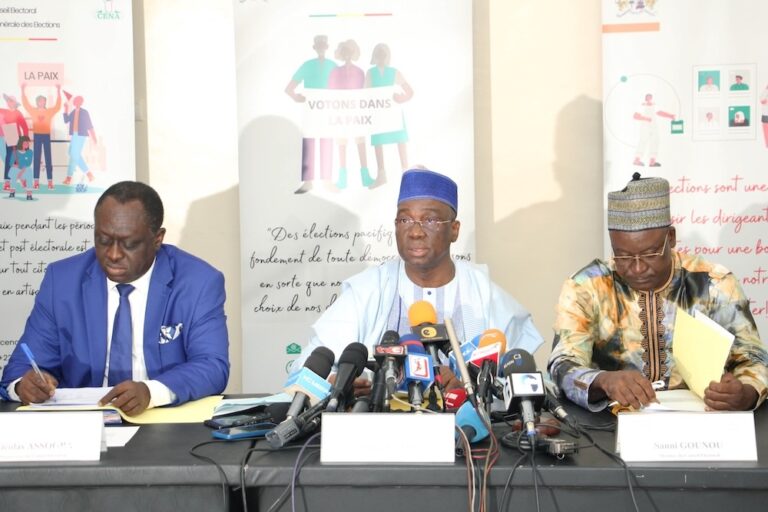(FXI/IFEX) – The following is FXI’s weekly report: Focus of the Week Sunday Times charged with interfering with police work The South African Police Service (SAPS) opened a docket against the Sunday Times for publishing the picture of a suspect in the murder case of Marike de Klerk, the former president’s wife, the police confirmed. […]
(FXI/IFEX) – The following is FXI’s weekly report:
Focus of the Week
Sunday Times charged with interfering with police work
The South African Police Service (SAPS) opened a docket against the Sunday Times for publishing the picture of a suspect in the murder case of Marike de Klerk, the former president’s wife, the police confirmed.
Ken Speed of the South African Police Service from the Crimes Against State Unity said the SAPS is charging the Sunday Times under Section 69 of the South African Police Act of 1995 which deals with the prohibition of taking and publishing pictures of people connected to a crime. The act states that:
(b) Any person who takes a photograph or makes a sketch in contravention of a prohibition under paragraph (a), shall be guilty of an offence and liable on conviction to a fine or to imprisonment for a period not exceeding 12 months.
(3)(a) No person may, without the written permission of the National or Provincial Commissioner, publish a photograph or sketch of a person –
(i) who is suspected of having committed an offence and who is – (aa) fleeing; (bb) in custody pending a decision to institute criminal proceedings against him or her; or (cc) in custody pending the completion of criminal proceedings in which such person is an accused; or
(ii) who is or may reasonably be expected to be a witness in criminal proceedings and who is in custody pending such proceedings.
(b) Any person who publishes a photograph or sketch in contravention of paragraph (a), shall be guilty of an offence and liable on conviction to a fine or to imprisonment for a period not exceeding 12 months.
According to Section 69, a photograph is defined as: “any picture, visually perceptible image, depiction or any other similar representation of the person concerned; ‘publish’, in relation to a photograph, includes to exhibit, show, televise, represent or reproduce; and ‘take’, in relation to a photograph, includes the performance of any act which by itself or as part of a process or as one of a sequence of acts renders possible the production of a photograph.”
De Klerk was found murdered in her apartment in Cape Town on Monday 7 December 2001 and police picked up a security guard for questioning. The guard worked at the complex De Klerk lived in. On Sunday 10 December, the Sunday Times newspaper ran a story about the murder of the former first lady and published the picture of the suspect, whom police picked up in connection with the murder.
The Sunday Times claims that, when they published the story, they had confirmation from the police that the suspect had confessed and was charged with the murder of the former first lady. However, police are now claiming that the publishing of the picture violates Clause 2 (b) of the South African Police Act.
While the Freedom of Expression Institute does recognize and understand the need for the lack of interference in police work, the Institute also realizes that this genuine concern for police work may be used to limit free expression.
Although the act used against the Sunday Times may be from an amended version of 1995, it originated from the apartheid regime. During apartheid, pictures of many political detainees were prevented from being taken or published because of this law. One example is Steve Biko who was murdered in prison. Journalists could not take and publish his pictures because that was said to interfere with police work. In other words, the law was used to prevent exposure of serious violations of human rights and police brutality.
Given the implication and potential danger of the law, the Institute calls upon the police to take serious considerations and only use the act when there is clear evidence of deliberate interference with police work, and not act on assumptions.
In the case of De Klerk, journalists’ work is to inform the people and if there is a suspect in the murder of the former first lady, the public has the right to know and the right to be informed of the identity of the suspect.
The Diary
A case against licensing journalists
In recent months, regional body the Southern Africa Development Community (SADC) proposed a protocol whereby journalists will be licensed in order to practice in the region. Following the protocol, governments in the region also followed this route. Both Zimbabwe and Botswana drafted legislation that if passed into law will enforce the licensing of journalists.
The suggestion to license journalists has serious implications for freedom of expression and free speech. Firstly, the government will decide which journalists to license or not to license. The implication is that journalists cannot voice opinions dissident from the government. Another problem is that the constitutional right to freedom of expression is not limited to journalists but extended to all people. Media is just a platform for expressing oneself. The limitation of participation by way of a license will violate the people’s right to freedom of expression.


